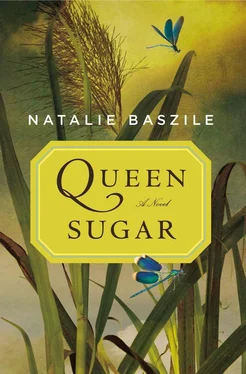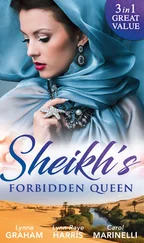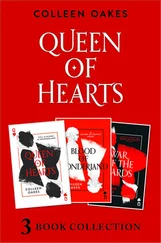Uncle Brother stepped closer to Ralph Angel. “I asked you a question. What are you doing here?”
Ralph Angel put his hand over his heart. “What makes you think I wasn’t invited?”
In a fluid gesture, John put a firm hand on Ralph Angel’s arm. He was twenty years younger than Ralph Angel but stood a foot taller, and was, Charley guessed, at least thirty pounds heavier. “Why don’t we take this out to the street?”
Something flashed across Ralph Angel’s face. Charley saw it. Ralph Angel looked at John’s hand on his arm and pulled away slowly. “I don’t want to take this out to the street. I’d like to say hello to the rest of the family.” He stepped forward, but John blocked his path.
“I can’t let you do that, cousin. I’m sorry. Not before we straighten this out.”
Ralph Angel stared at John. After a long moment, he laughed. “Come on, man. Why you want to hassle me?” He brushed past John, quick as a running back, and made his way up the walk. He stopped at the bottom step and looked up at Charley. “Hello, sis.”
Charley recalled what Violet had said about Ralph Angel pushing Miss Honey. Something about the way he stood there with that toothpick in his mouth made her think he might be capable of it. Still, he’d held Blue’s hand with great tenderness. That counted for something. A lot, actually. How harmful could he be? Charley moved down the steps. “Hello, Ralph Angel. It’s good to see you.” She heard Violet gasp behind her. Unsure whether to hug him or shake his hand, she took a chance and opened her arms. Their embrace felt wooden.
Ralph Angel broke away first. “Yeah. It’s been a long time.”
The screen door creaked, and Miss Honey, wiping her hands on her apron, stepped out onto the porch. “Why is it so quiet?”
“Hello, ’Da,” Ralph Angel said.
“Hello, Ralph Angel,” Miss Honey said. She barely blinked.
Ralph Angel tipped his head toward the side yard, toward the tables and chairs, the last of the food on dishes covered with crumpled foil. “Looks like I missed the celebration.”
“Mother,” Violet said, standing up now, “did you call Ralph Angel?”
Miss Honey looked almost dreamily at Violet, then out into the street, where a car — a dark blue Monte Carlo, Charley saw — approached. Music pulsed and young, defiant voices rang out over heavy bass. The driver honked and waved. Everyone looked, out of habit, to see who was behind the wheel. “That’s sister Martin’s boy,” Miss Honey said, more to herself than anyone. “Where does he think he’s going?”
“Mother, I’m asking,” Violet said. She inched up to Miss Honey and held her shoulders just the way she’d held Charley’s that day she’d begged her to go to Sugar Town. “Did you call Ralph Angel? Because someone did, and now he’s here.”
The music blaring from the car’s speakers was swallowed by the heat. Miss Honey’s yard fell quiet again. But Charley still heard layers of sound — the hiss of insects in the trees, the creature whine rising from the gulley, faint voices of neighbors up and down the block, and beyond that, the faint drone of cars whipping over the asphalt. She heard all of it, felt herself drawn down into the mucky clay and the stalks of cane.
Miss Honey pulled away from Violet’s grip. “What if I did? What’s wrong with wanting my family to come together? Yes, I called him, and now it’s done. Now I want you and Brother to welcome Ralph Angel home.”
Violet and Brother exchanged glances.
“No, Mother,” Violet said. “I’m sorry.”
Miss Honey glared at Violet. “I’m booking you, girl.” She turned to Uncle Brother. Her voice was raw. “I’m going to say this one time, so y’all better hear me, because I’ve come to the end of my row. Y’all may be grown out there in the world, but when you come to my house, you better leave your manhood and your womanhood under my porch step. If Charley can welcome Ralph Angel, so can you.” She paused to wave a finger across the porch and over the yard. “As a matter of fact, all y’all can.”
Charley looked at her relatives, at Screw Neck in his workday overalls and Maraine, small and birdlike in her compression stockings and orthopedic shoes, whose name, Charley had learned earlier, was actually Clemence, but who went by Maraine, which meant “godmother” in French. She searched every face, waiting for someone to say something, wondering what they knew. No one moved.
“Forget it, ’Da,” Ralph Angel said. “Don’t force them.”
And as Charley struggled to make sense of what was happening, Violet pulled the screen door open. “I’ll see you later, Mother.” She disappeared into the house, emerging a moment later with her purse.
“Where are you going?” Miss Honey called.
Down the steps now, Violet paused in front of Charley and took her hand. “I’m sorry,” she said. “I’m sorry this had to happen today. I’m sorry this had to happen when you have so much on your plate.”
“Violet,” Charley said. “Whatever is going on, whatever happened before, I’m sure we can work it out.” Who knew why Miss Honey never told anyone she had invited Ralph Angel to the reunion, but in the end, what did it matter? He’d stay for a couple days, and yes, it would be uncomfortable, but then he’d go back to wherever he’d come from.
Violet shook her head. “You’re sweet. But no, darling, we can’t. We won’t work this out. You don’t know that now, but you’ll see.” And with that, she walked past Ralph Angel, past Uncle Brother and John, and out of the yard. Charley felt desperate watching Violet drive away. For Violet was the one person she’d come to feel at home with in her new home. Violet was family. When she turned back, she saw Ralph Angel give a little shrug. Then he looked to her.
“So, sis, what’s going on? Long time, no see. And by the way, I heard the good news. Congratulations on your farm.”
• • •
The party was over. Charley tossed the empty bottles and paper plates in the trash, dragged the garbage can to the street, and was about to go inside when she heard someone call her name. Hollywood, walking fast down the street.
“Was that Brother and John I just seen?” he asked, breathless, pointing over his shoulder in the direction he’d just come from then peering into Miss Honey’s yard. “Where is everybody?”
He’d showered and shaved, combed his hair and changed his shirt, though he still wore his shabby army fatigues and reeked of cologne, underneath which Charley smelled laundry detergent and the deep odor of armpit perspiration run over with a hot iron. “Gone,” Charley said, and looked back at the trampled grass, the tables and folding chairs stacked neatly near the bottom step. Within an hour of Ralph Angel’s arrival, everyone left.
Hollywood’s face fell. Though he was certainly older than Charley — he had to be close to Ralph Angel’s age — Hollywood’s disappointment made him look much younger. “Aw, man. I thought y’all would be partying all night.” He gazed down the street like a boy who had missed the parade. “Doggone,” he said, quietly.
“I’m sorry,” Charley said. Twilight had declared itself with a rush of cooler air, and though she wanted to sit by herself for a while, sit and try to make sense of the day, Charley said, “Why don’t you come in? At least let me fix you a plate to take home.”
“I don’t know.” Hollywood jammed his hands into his pockets. “I should go.”
“But you walked all the way over here,” Charley said, thinking of the compound three miles down the road. Miss Honey had pointed it out one day as they ran errands in town — the handful of ramshackle trailers scattered around the cleared lot like boxes of crackers; the children, barefoot and pale, who played on the broken-down swing or in the rusted-out cars or jumped on the old mattress they used as a trampoline. “That’s the Arnaud Plantation,” Miss Honey had said. “Hollywood, my gardener, the one who’s gonna clean the back room, lives there,” and she’d gone on to explain that the Arnauds were a clan of Creoles — a mix of African, Spanish, French, and Anglo — who stuck to themselves and intermarried to preserve their fair skin; had for generations. They owned a cemetery back in the woods where all of the black folks in town were buried, where she’d be buried when her time came. “Miss Honey won’t like it if you leave without saying hello.”
Читать дальше












